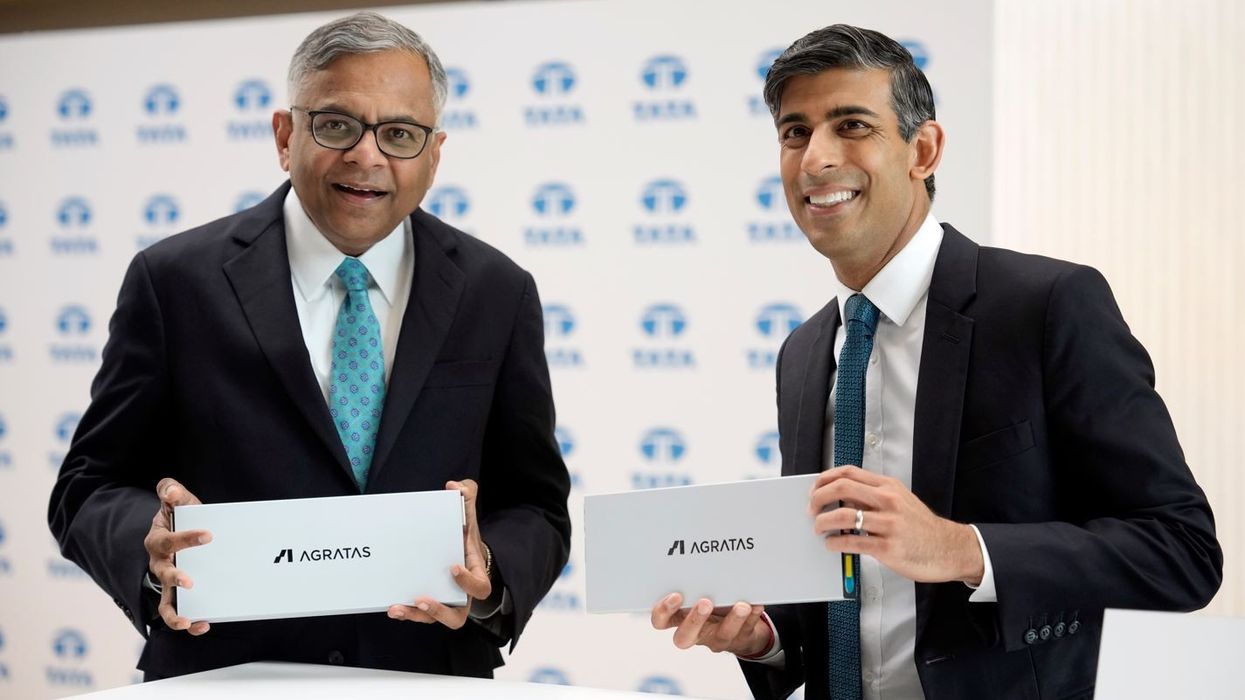INDIA’S Tata Group confirmed it will build an electric vehicle battery plant in Britain to supply its Jaguar Land Rover factories, delivering a major boost for a UK car industry in need of domestic battery production to help secure its future.
The announcement marks Britain’s biggest move in the car gigafactory space as it seeks to keep up with the US and European Union in the race to develop green industries.
Tata said last Wednesday (19) it would build its first gigafactory outside India in Britain with an investment of £4 billion, creating up to 4,000 jobs and producing an initial output of 40 gigawatt hours.
Prime minister Rishi Sunak’s government declined to outline the financial support it had promised Tata to fend off Spain, which had also lobbied to win the project. During a visit to a JLR facility last Wednesday, Sunak said the investment was a “fantastic vote of confidence” in Britain’s economy, adding that the UK had provided targeted investment. “We’re actually well on our way to providing the EV capacity that the country needs,” he said.
Energy minister Grant Shapps told the BBC the support package was “large”, but would not directly reach £1bn, adding that details of the deal would follow later due to commercial sensitivities.
Britain has lagged European rivals in building electric vehicle (EV) battery gigafactories, with more than 30 planned or under construction across the EU. Britain currently has one small Nissan plant and another in the works.
The new plant is expected to be built in Somerset, south-west England, while Jaguar Land Rover’s UK factories are near Birmingham, reflecting the need for heavy batteries to be built near their car plants.
Production is due to start in 2026 to supply JLR’s future battery electric models, including the Range Rover, Defender, Discovery and Jaguar brands.
With an initial output of 40 gigawatt hours, Britain said the factory would provide almost half of the battery production it needed by 2030. The Faraday Institution predicts Britain will need more than 100 GWh a year by that time.
The announcement comes with Britain at a critical stage in free trade talks with India, and Tata Sons Chairman N Chandrasekaran said the plan strengthened the company’s commitment to the UK and thanked the government for working “so closely with us to enable this investment.” “Tata Group will be setting up one of Europe’s largest battery cell manufacturing facilities in the UK,” he added. “Our multi-billion-pound investment will bring state-of-the-art technology to the country.”
Industry figures welcomed the announcement as a lifeline to a sector that otherwise risked being left behind as other countries offer subsidies to support electric carmakers.
Under net zero goals, Britain plans to ban the sale of new petrol and diesel cars from 2030, and under post-Brexit rules, automakers will also need to source more EV components locally to avoid tariffs on UK-EU trade from 2024.
Major automakers including Vauxhallowner Stellantis and Ford warned in May that the looming rules risked making Britain unviable for future investment, prompting the government to say it was trying to ease them.
The failure of an EV startup, Britishvolt, in January also underlined the difficulties of establishing a home-grown industry amid a shortage of suitable sites.
Investment minister Dominic Johnson said the factory “really does move the needle and acts as a massive beacon for the global car industry to say that the UK is back in business.”
“Hopefully we’re going to be returning to our peak level car production over the next five to 10 years,” he told Reuters.
He added that when Britain lost out on Tesla’s European gigafactory in 2019 the government decided: “We’re never going to let that happen again.”
“We were absolutely focused on winning this investment,” he said. “As soon as it got out that we may be in the running to win this amazing investment, we started to get some quite interesting inquiries from other companies.”
Greenpeace senior climate campaigner Paul Morozzo hailed the announcement as a “significant moment for the UK car industry”.
It signalled “that the government has finally started the engine in the international clean technology race, while others are speeding ahead”, Morozzo added in a statement.
Morozzo warned, however, that the UK government must stay on track with its 2030 target. (Agencies)




